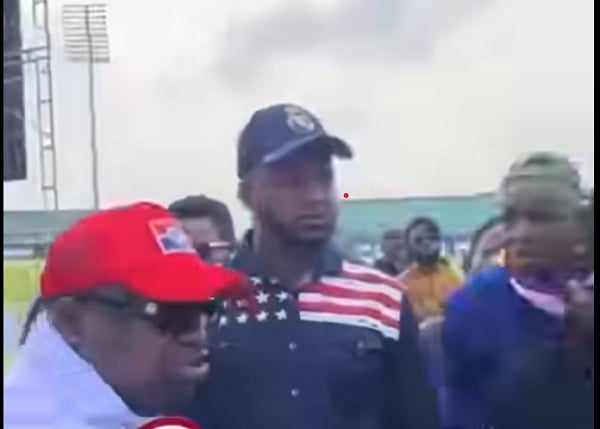The New Patriotic Party (NPP) finds itself embroiled in a controversy that threatens to undermine its unity and democratic principles, stemming from accusations of orchestrated manipulation during its recent conference. Allegations center around the party’s National Organiser, Henry Nana Boakye, known as Nana B, who is accused of transporting over 3,000 non-delegates to the conference venue, purportedly to create an artificial swell of support for Vice President Dr. Mahamudu Bawumia, a leading contender for the party’s flagbearership. This alleged act of political stagecraft has sparked outrage among other presidential hopefuls, who view it as a blatant attempt to manipulate perceptions of grassroots support and undermine the fairness of the internal contest. The controversy casts a long shadow over the party’s efforts to project an image of unity and strength, instead highlighting deep-seated concerns about transparency and ethical conduct within its ranks.
The core of the controversy lies in the perceived manipulation of the conference’s atmosphere. Critics argue that the influx of non-delegates was a deliberate strategy to create a false impression of overwhelming support for Dr. Bawumia, thereby influencing the perceptions of delegates and the broader public. This orchestrated display of support, they contend, stands in stark contrast to the principles of fair competition and democratic process that should underpin the party’s internal elections. Instead of showcasing a genuine groundswell of support for a particular candidate, the alleged manipulation casts doubt on the authenticity of any perceived momentum, creating an environment of distrust and suspicion among the various camps vying for the party’s leadership.
The incident has ignited a broader debate within the NPP about the role of party executives and the importance of maintaining a level playing field for all aspirants. The silence of Nana B, a known supporter of Dr. Bawumia, in the face of these accusations has further fueled speculation and intensified calls for accountability. His previous pronouncements about the party’s organizational strength now ring hollow for many, who argue that logistical prowess cannot substitute for ethical conduct and adherence to democratic principles. The controversy underscores the growing concern that the party’s leadership may be prioritizing political maneuvering and strategic advantage over the principles of fairness and transparency that should guide its internal processes.
The implications of this controversy extend far beyond the immediate context of the conference. It raises fundamental questions about the future direction of the NPP and the values that will shape its trajectory. Will the party prioritize unity built on a foundation of fairness and merit, where all aspirants have an equal opportunity to compete based on their vision and qualifications? Or will it succumb to divisive tactics and backroom maneuvering, where the outcome is predetermined by those who wield influence behind the scenes? This is the crucial juncture at which the NPP finds itself, a moment that will define its character and determine whether it remains a party committed to democratic ideals or descends into a battleground of political expediency.
As the race for the flagbearership intensifies, the focus is shifting from individual candidates to the very soul of the party. The central question is no longer merely who will lead the NPP into the next general election, but rather how that leader will be chosen. Will the decision be made through a transparent and democratic process that reflects the will of the party’s members, or will it be orchestrated by those who prioritize personal agendas and political machinations? This is the challenge that confronts the NPP, a challenge that will determine whether it can maintain its credibility as a democratic institution and retain the trust of its supporters.
The controversy surrounding the alleged manipulation of the NPP conference serves as a stark reminder of the fragility of democratic processes and the constant vigilance required to safeguard them. The accusations against Nana B and the ensuing debate within the party underscore the importance of upholding ethical conduct, transparency, and fairness in all political activities. The NPP now faces a critical choice: to reaffirm its commitment to democratic principles and ensure a level playing field for all aspirants, or to risk further division and erosion of trust. The future of the party, and its ability to effectively represent the interests of its constituents, hinges on the choices it makes in the coming days and weeks.


